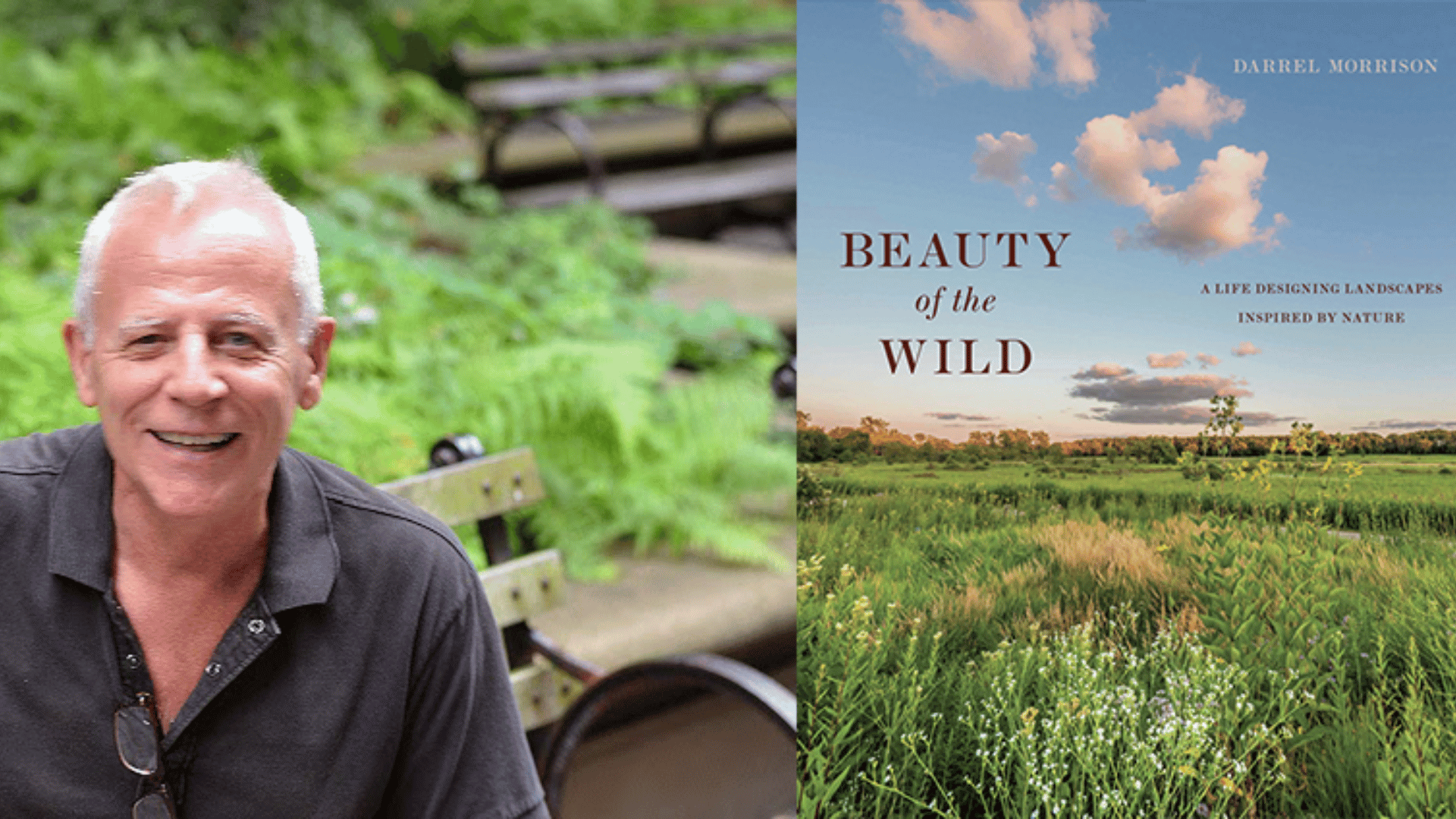Darrel Morrison, Dean (1983-1991) and Professor Emeritus, influenced countless CED students by focusing on native plants, merging art with ecology, and prioritizing ecology-based design and management. After retirement in 2005, he taught part-time at Columbia University, Rutgers University, and at the New York Botanical Garden.
Book description from the Library of American Landscape History (LALH)’s Website:
BEAUTY OF THE WILD
A Life Designing Landscapes Inspired by Nature
In Beauty of the Wild, Darrel Morrison tells stories of people and places that have nourished his career as a teacher and a designer of nature-inspired landscapes. Growing up on a small farm in southwestern Iowa, Morrison was transported by the subtle beauties of the native prairie landscape—the movement of grasses in the wind, clouds across the sky, their shadows over the plain. As a graduate student at University of Wisconsin–Madison, he encountered the Curtis Prairie, one of the first places in the world where ecological restoration was practiced. There he saw the beauty inherent in ecological diversity.
For more than six decades, Morrison has drawn inspiration from the varied landscapes of his life—from the Iowa prairie to Texas prickly pear scrub to the maple-beech-hemlock forests of Door County, Wisconsin, to the banks of the Oconee River in Piedmont Georgia. He has been guided as well by the teachings of Jens Jensen, who believed that we can’t successfully copy nature but can get a theme from it and use key species to evoke that essential feeling. In native plant gardens at the University of Wisconsin Arboretum, New York Botanical Garden, and Brooklyn Botanic Garden, Morrison has blended communities of native plants in distillations of prairie, woodland, and coastal meadow. At Storm King Art Center, his landscapes capture the essence of prairie grasslands and native meadows. These ever-evolving compositions were designed to reintroduce diversity, natural processes, and naturally occurring patterns—the “beauty of the wild”—into the landscape.

